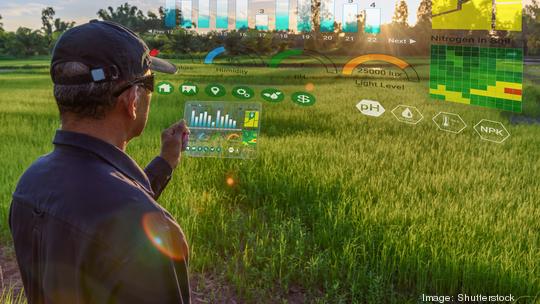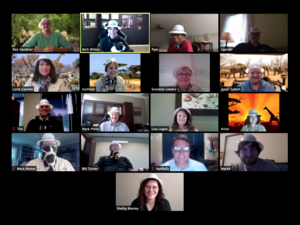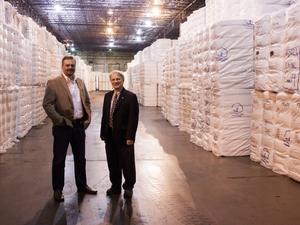
COVID-19’s effects on restaurants, hotels, and other institutional food buyers were sometimes fatal, often severe, and always contagious. Swiftly, economic symptoms spread to their suppliers, and small- to mid-sized farmers continue to struggle in a pandemic-centered world.
In many cases, these are growers of specialty crops — fruits and vegetables, along with several other food types — and their produce requires intricate planning and growing processes. While the end products can be highly valued, the organizations themselves are often smaller than mega-farms, with less technological resources.
In some cases, explained Mark Pryor, president of The Seam, these specialty crop farmers lack a website or digital communication option. This created a disconnect with customers at the pandemic’s onset.
“They were growing a lot of these crops out there, but their supply chain was limited,” he said. “Well, what are they going to do with it? If they had a marketplace … and if they had the ability to communicate the attributes, nutrient contents, and all of their [produce] details in a standard way, then perhaps they wouldn’t have had to sit on a lot of this supply, or let it go to waste.”
Now, however, The Seam — a Memphis-based software company that works with agribusinesses — as well as the agtech startup supporter AgLaunch, Mississippi State University, Tennessee State University, and the Wallace Center at Winrock International, are working together to provide a suite of technology offerings for specialty farmers.
The group is working through a collaboration called the Open Market Consortium (OMC), and it’s recently been provided $2 million in funding from the Foundation for Food and Agricultural Research (FFAR). Combine that with contributions from the Tennessee Department of Agriculture and some of the OMC’s members, and it’s sitting on $4 million worth of investments.
The Seam is developing the technology, and the goal, Pryor said, is to digitize the specialty crop space, and give farmers a chance to describe their produce attributes, in detail, to a wider audience — thus expanding their client and market opportunities.
He compared it to Shopify, the e-commerce platform that helps businesses set up online stores and sell their products.
“Our primary focus is to be the back-end engine that allows these storefronts to hook into the specialty crop ecosystem,” he said. “It’s done with a farmer-focused mindset, with their interests, and how can they reach a broader audience through this ecosystem.”
It should also be able to facilitate transactions. Let’s say a farmer grows sweet potatoes, and a local university wants to buy them. The platform will facilitate the contracting and transaction, while preserving information about the deal.
This is a two-year initiative, and a pilot version of the program is currently underway in Tennessee through the AgLaunch Farmer Network.
Really, Pryor said, software like this should have been created long ago. But, the need for it was exacerbated by the pandemic. He hopes this type of initiative will “future proof” the specialty crop farming industry.
“The best possible outcome is to digitally enable the farmer, and to give him the tools that will allow him a much broader reach for his products, bringing him more value, and more money,” he said. “Ultimately, it boils down to sustaining the farmer economically."








